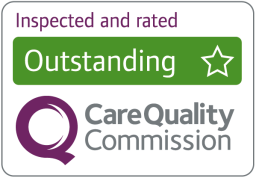Sex and depression
I’m no stranger to writing about my mental health on the internet. For over a year, I ran an “agony aunt” blog on how to navigate the tricky intersection between love, sex and mental illness. But I still get nervous when opening up about my own experience of depression.
It feels like there’s a heavy coat on my shoulders which reads “Once depressed, always depressed” - I’m not allowed to have a life outside of mental illness, and especially not a sex life.
I was first diagnosed with depression when I was 18 years old. It’s taken me nearly a decade to get to where I am today: I no longer experience symptoms of depression and am flourishing with positive mental health. Now, I can work, socialise and pursue my interests in a way that was limited by mental illness for so many years. Recently, I finished long-term talking therapy as I no longer need that safety net to support my growth and recovery.
Over the last decade and alongside talking therapy, I have taken about a dozen different medications to manage the symptoms of depression and anxiety. For me, SSRIs (selective serotonin reuptake inhibitors), the most widely prescribed antidepressants, triggered sexual side effects, like lower libido and vaginal dryness. But more importantly... I just couldn’t orgasm!
This has been found to be a statistically significant side effect of sertraline, a commonly prescribed antidepressant (Croft et al). For me, this was the case both during sex with partners and when masturbating. I could masturbate for half an hour or more and was just unable to reach orgasm, even though I felt turned on. This made me feel even lower in mood. Depression had already made me feel cut off from other people, so being unable to enjoy a basic human experience of pleasure felt even more isolating and painful.
It felt like I was being given the choice of “good mental health” or “good sex life” but never, ever both.
In regular visits to (mostly male) GPs, I felt that these side effects weren’t taken seriously. Either I was too embarrassed to even mention it in the first place, or when I did mention it, it was brushed aside. It was seen as unimportant to have a sex life when I was dealing with much “bigger problems”, referring to symptoms of my illness, like suicidal thoughts, self-harm, poor appetite and insomnia. Being unable to orgasm took a toll on my romantic relationships as it created a pattern of faking orgasms. This only led to an even less fulfilling sex life, feelings of guilt and shame, and further fuelled my depression.
A whole person - not just a list of symptoms
Medical professionals need to see patients as rounded individuals, not just a list of symptoms. This means accepting that they have a life outside of their illness - a life that includes romantic relationships and sex. Sadly, and largely due to funding cuts, the UK’s NHS mental health services have become reactive, not proactive. We only treat mental illness when it becomes a crisis, rather than giving people the tools they need to manage their mental health effectively to avoid a crisis.
Similarly, we do not approach mental health holistically in the context of someone’s social life, culture and physical health. In my case, if a health care professional had put together the triggers for my depression, my age, background and physical health, they would have arrived at a more suitable treatment much sooner, rather than me feeling like a guinea pig trialling endless medications.
I have been taking amitriptyline, a less commonly prescribed antidepressant (it’s used to treat chronic pain and migraines as well as for depression!), for the last nine months and it has effectively helped to prevent relapses of depression.
The single biggest factor in choosing this medication was that I can orgasm! I worked really closely with a lovely female GP to select my medication based on my medical history. I was able to be totally frank with her, talk to her about my sex life and what I wanted from my medication. It is your right to demand the treatment which works best for your body. You do not have to accept the first thing your GP offers you.
When I started taking amitriptyline, I still experienced anxiety around sex. It took some time, and with the support of a loving and understanding partner, to be able to orgasm. Many years of being unable to attain orgasm had given me an enduring hangover around sexual intimacy. The pressure to climax felt overwhelming. With this partner, I was able to be totally upfront. They were really reassuring and told me that it didn’t matter if I had an orgasm or not, and reassured me that the experience was enjoyable with or without an orgasm.
Seeing sex as an experience, not a destination, has really transformed my attitude to sex and has allowed me to relax with my sexual partners…which ultimately led to more orgasms!
My depression and the pill
I’ve worried about the impact of the contraceptive pill on my mental health. I’d taken the combined pill for seven years which coincided with the most severe phase of my depression. It’s really hard to unpick and separate the issues - I don’t know if the pill was contributing to my depression.
I was too unwell to really question my contraception at the time, so just continued taking it. Now, it’s more widely acknowledged by prescribing GPs that depressive symptoms can be a side effect of the pill, but this was never once mentioned to me as a teenager or young adult.
I’ve since had two years without hormonal contraception. This has coincided with a full recovery from depression, but I’ve also been taking the right medication, given up alcohol, had more positive personal relationships and have a rewarding career! So it’s hard to say how contraception fits into this picture of personal growth.
For mental health professionals working with young women, I’d encourage them to open up conversations about sex and contraception as significant factors in their patient’s overall wellbeing.
Through recovery, my self-esteem has grown immeasurably. I feel at ease with myself and am confident in who I am. I am worthy of the same love as anybody who hasn’t experienced a mental illness...so I deserve a healthy and fulfilling sex life! Finding the right medication which allows me to orgasm and also improves my mood has been instrumental in the broader process of self-love.
To anybody who is currently experiencing the incomparable pain of depression - you are so much more than your illness. You deserve love, support and affection to help you find your way through recovery.


